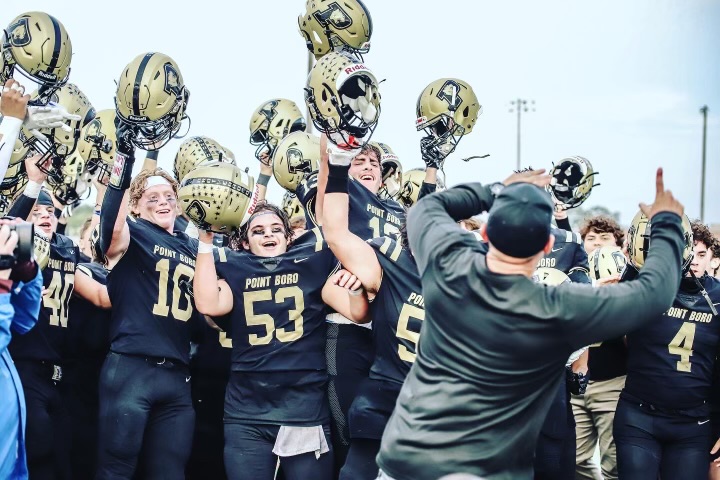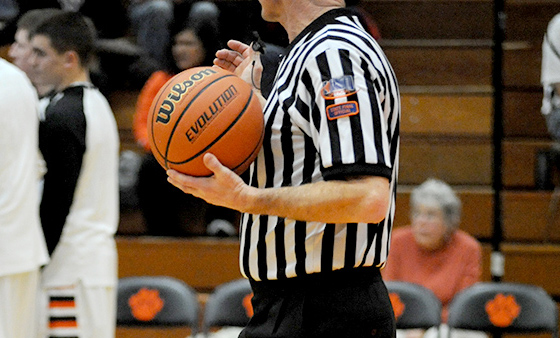Years before the lapses that led to his resignation, former Ohio State University head football coach Jim Tressel was cited for failing to report NCAA rules violations and complete compliance-related forms in a timely, accurate manner, documents released today by Ohio State reveal.
The most-recent written evaluation in Tressel’s personnel records was from his 2005-06 review. His performance on compliance-related issues in other years isn’t clear.Tressel was forced to resign on May 30, unable to survive a scandal in which he failed to report possible NCAA violations when he learned that at least two of his players had sold OSU memorabilia and gear. Complete coverage is available at www.Buckeyextra.com.
The most-recent written evaluation in Tressel’s personnel file was from 2005-06. That’s because current athletic director Gene Smith replaced Andy Geiger in April 2005 and began doing verbal evaluations of Tressel, OSU spokesman Jim Lynch said.
He didn’t know why Smith moved from written to verbal reviews or whether he does anyone else’s evaluation that way. Smith couldn’t be reached for comment this morning.
Before his departure, Geiger also had a history of admonishing Tressel and the other coaches for violations, both major and minor.
Between 2001 and 2005, Tressel received six letters from Ohio State officials warning about NCAA violations, including one that was sent to the entire football coaching staff.
They dealt with issues ranging from allowing a recruit’s mother to make a free phone call to paying attention to the cars that athletes drove, according to the documents obtained by The Dispatch based on a public-records request.
Tressel’s personnel file reflects no letters of admonishment after Smith took over Ohio State’s athletic programs, although the university regularly has self reported minor violations to the NCAA.
Asked to comment on Tressel’s behalf, his lawyer, Gene Marsh, this morning pointed to a section of Ohio State’s March 11 report to the NCAA formally notifying the organization of the coach’s violations.
Tressel’s “behavior in this situation is out of character for him and is contrary to his proven history of promoting an atmosphere of NCAA compliance within the football program,” says the document signed by Smith, President E. Gordon Gee and faculty athletics representative John Bruno.
“Since his hiring as the head football coach in 2001, he and his staff have attended NCAA rules education sessions on a consistent basis, regularly sought interpretations and self-reported secondary violations,” the document says.
Ohio State personnel documents show that OSU men’s basketball coach Thad Matta had been admonished for some of the same compliance issues as Tressel, especially related to filing NCAA-related forms in a timely fashion, as long ago as the 2004-05 school year.
But unlike for Tressel, there are annual written records of Matta’s evaluations through 2010 among the records released by Ohio State.
It’s unclear why Matta’s reviews have been handled differently than Tressel’s, but it could be because Miechelle Willis, OSU’s senior associate athletic director, has continued to do Matta’s evaluations, even after Smith came to Columbus.
Though Matta was cited for a number of issues in the early years, he was praised for improving his performance in compliance as time progressed.
In his 2004-05 review, for example, Matta was faulted for turning in phone and other logs long after they were due. But in his 2009-10 evaluation, he was praised for having a “very good relationship” with the compliance staff and keeping them better informed than he had ever before.
The documents released today also show Matta receiving five letters of admonishment or education, with the latest dated Feb. 6, 2007.
Ohio State officials will meet with the NCAA’s Infractions Committee in Indianapolis on Aug. 12 on a case involving seven OSU players who received improper benefits when they sold or traded memorabilia for tattoos, and Tressel’s lies about his knowledge of the violations.
Tressel was warned in 2003 to keep an eye on the cars players were driving.
On Sept. 9, 2003, the day before Ohio State suspended then-running back Maurice Clarett for the 2003 season for accepting improper benefits, Geiger admonished Tressel to monitor players’ cars.
Clarett, who later made unproven claims that players received cash, no-show jobs and cars from boosters, reported to police that items had been stolen from a car he was driving on an extended test drive from a local used-car dealer.
“I am writing to make clear that the University expects you and your staff to pay attention to the automobiles driven by football student-athletes and report to the Athletic Compliance Office any unusual circumstances with respect to such automobiles,” Geiger wrote Tressel in a “letter of caution and education.”
He also counseled Tressel to monitor and report any signs if players’ use of cell phones and pagers that were “out of the ordinary.” Among the allegations leveled against Clarrett was free use of a cell phone.
The Dispatch, which reported May 7 that a salesman who worked at two area car dealerships had sold vehicles to a concentration of OSU athletes and family members, today received compliance-related emails it requested from Ohio State 10 weeks ago.
The Ohio Bureau of Motor Vehicles examined 25 player-related vehicle sales and reported in June that it found no dealer paperwork irregularities. However, the BMV did not search for possible NCAA violations, saying such an investigation was outside its purview.
After the BMV report, OSU dropped its plan to hire experts to conduct an independent investigation of vehicle purchases by players and their family members. The NCAA has been investigating departed quarterback Terrelle Pryor’s use of several vehicles.
The compliance records include that:
- In periodic emails to Tressel or Smith, compliance director Doug Archie reported dealing with Jack Maxton Chevrolet owner Jeff Mauk about players seeking to buy cars from the Worthington dealership. Archie did not care for some of the players’ purchase plans, calling one “a bad idea” and expressing alarm in another that neither the player nor his parents had money to buy a car.
- In a 2008 case, in which a player was buying his third car from Maxton in less than two and one-half years in a bid to reduce his car payments, Archie wrote that while the sales were “above board … the volume is starting to draw our attention.” He wrote that the unidentified player should be forbidden from buying a fourth car without the approval of the compliance and football offices.
- In early 2010, the compliance office appeared concerned about a player’s use of a loaner car from Auto Direct, a Northeast Side dealership, but determined the player’s car was being repaired.
Greg Gillum, director of football operations, wrote to Smith and Archie that car salesman Aaron Kniffin, who once worked at Maxton and later at Auto Direct, “is supposedly working on players’ cars and sending guys to Auto Direct for loaners … Our suggestion is that someone from compliance try to investigate whether this arrangement is valid.”
Kniffin, who most recently has worked in Georgia, was a central figure in the sales of dozens of vehicles to Ohio State athletes. OSU concluded there were no violations in players’ use of loaner vehicles.
Other records from Ohio State were heavily redacted, censoring vital information. For example, in a May 6 email to Smith from the compliance office, the university blacked out the number of football players who had purchased cars from particular dealerships over a three-year period.







